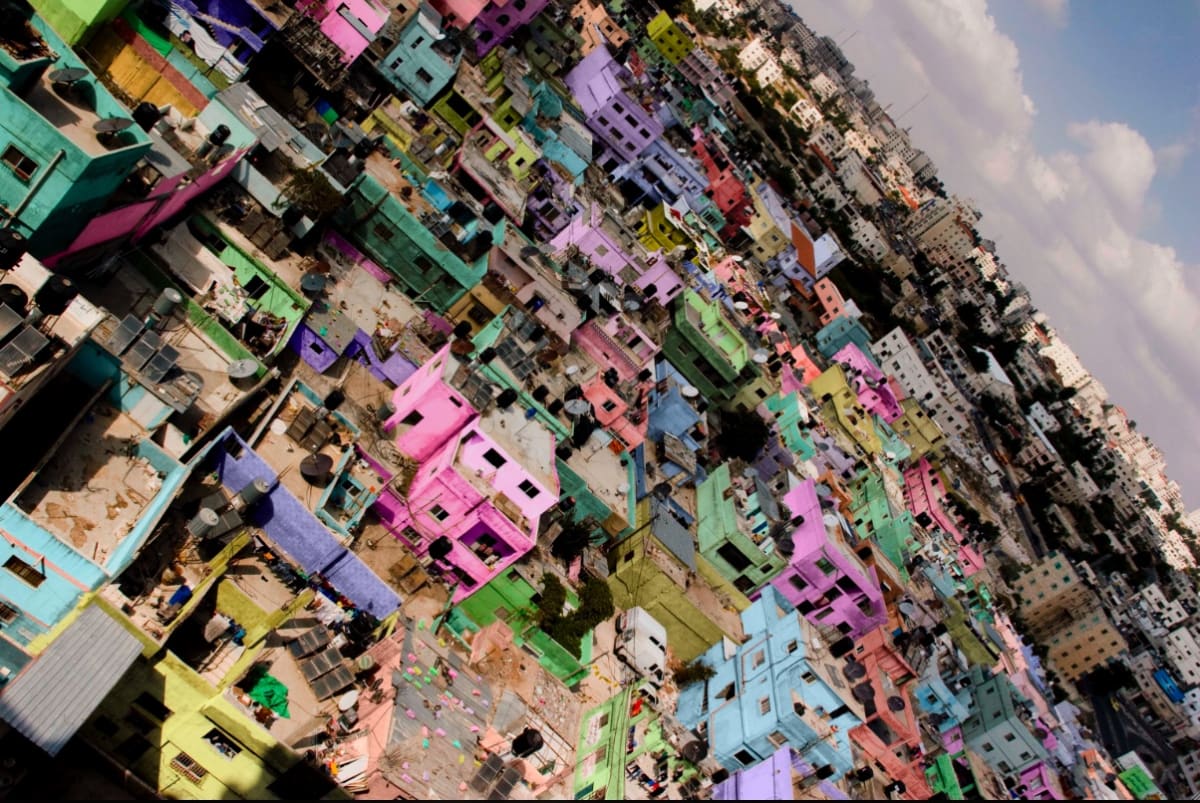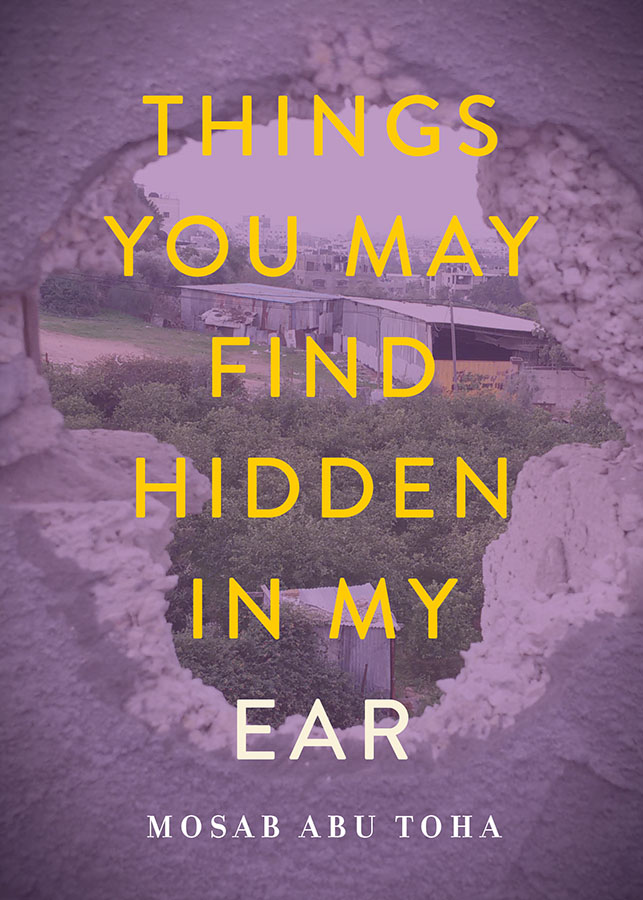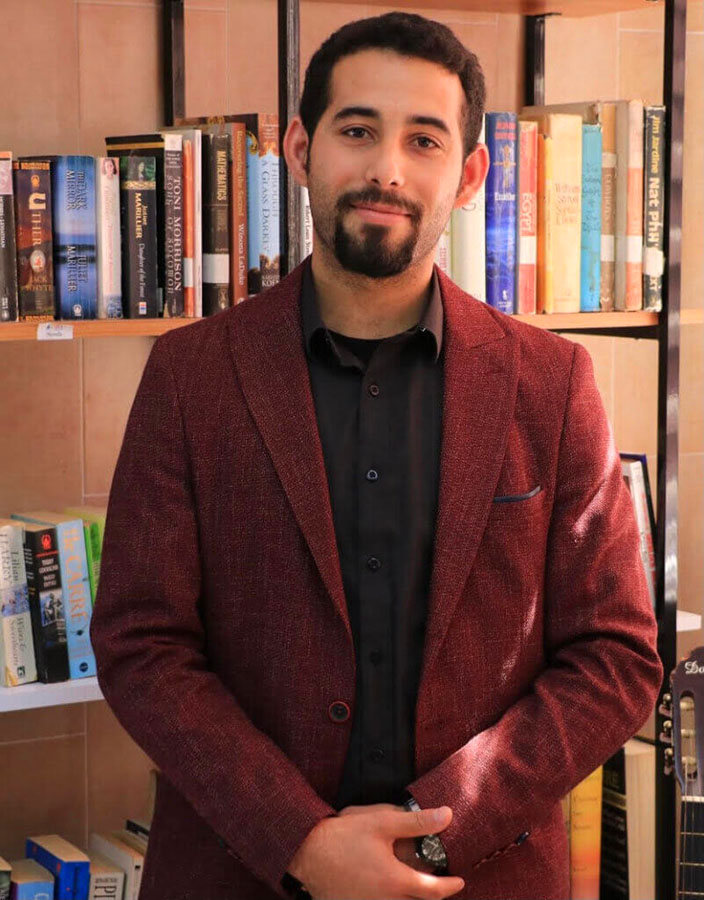
Things You May Find Hidden in My Ear: Poems from Gaza, Mosab Abu Toha
City Lights Books, 2022
ISBN 9780872868601
Eman Quotah
Nearly 30 years ago, I visited Gaza for half a day. I was part of an annual “peace studies mission” that my U.S. college and two neighboring schools hosted to allow a group of students to travel to and study a “conflict zone.” Previous “missions” had gone to Los Angeles and Northern Ireland.
Gaza was not on our official itinerary, which included locations in Israel, Jerusalem, and the West Bank. Then, an American relief worker offered to take a subgroup of students to Gaza on her weekly trip there. Three of us went. As we drove to Gaza City, the smooth freeways of Israel gave way to potholes and ruts. We could see the beach from the road.

Today, Gaza is perhaps more notorious to the world beyond its borders than it was then, before Hamas’ takeover and Israel’s ongoing siege, which began in 2007. At the same time, Gaza is also possibly more forgotten, only pricking the global consciousness and conscience every few years, as Chris Doyle noted in Arab News last week.
Palestinian poet Mosab Abu Toha, writing in English in his debut collection, Things You May Find Hidden in My Ear: Poems from Gaza, is well aware of the outsider’s intermittent and unreliable gaze.
“Gazans have to show the world that they cannot be defeated,” he tells American poet Ammiel Alcalay in the interview included in the book.
The poems in Things You May Find convey both the difficulty Gazans face and their undying determination. Abu Toha roots his poetry in everyday experiences of hardship and violence — so many mentions of drones and helicopters and F-16s and gunshots and bombings and explosions that the reader instinctually wants to cover her ears. The grandchild of refugees forced from Jaffa during the Nakba in 1948, he writes about a Gaza that is simultaneously the only home he knows and a symbol of everything the Abu Toha family has lost.
The collection begins with the long poem “Palestine A–Z,” a list of entries that, with cheeky solemnity, refuses to catalog Palestine for an English-speaking world that largely erases it.
B is “A book that doesn’t mention my language or my country, and has maps of every place except for my birthplace, as if I were an illegitimate child on Mother Earth.//Borders are those invented lines drawn with ash on maps and sewn into the ground by bullets.”
And G: “How are you, Mosab? I’m good. I hate this word. It has no meaning to me. Your English is good, Mosab! Thanks.//When I was asked to fill out a form for my U.S. J-1 visa application, my country, Palestine, was not on the list. But lucky for me, my gender was.”
Abu Toha founded the Edward Said Library, Gaza’s first English-language library, after saving an anthology of American literature from the rubble of his bombed university in 2014. Documenting life in Gaza is a Gordian knot throughout his collection. The poet’s need to record the details of daily living is at war with the life the siege forces him to live, one dominated by unending fear and loss of life. His need to tell the story of his people battles with the pictures of them others see. In “My Grandfather Was a Terrorist,” Abu Toha writes,
My grandfather was a terrorist—
He departed his house, leaving it for the coming guests,
left some water on the table, his best,
lest the guests die of thirst after their conquest.
Here is one rhetorical reality, Abu Toha seems to say, and here is another. “A poem is not just words placed on a line. It’s a cloth,” he writes. “Mahmoud Darwish wanted to build his home, his exile, from all the words in the world.” In “Flying Poem,” words are hidden in a drawer and then set free to be sung to “passing clouds” by migratory birds. In “Cold Sweat,” the poet sees the stars “through a bullet hole in the ceiling.”
Midway through the collection, Abu Toha supplements his words with photos in an “Interlude” whose captions serve as tiny poems, such as:
Everything gets tied in Gaza’s noose.
When a shower of stones isn’t enough, a sky of stones might be.
The scent of coffee still hangs in the air. But where is the kitchen?
Through it all, the strawberries have never stopped growing.
In “Discoveries,” we imagine the harshness of life grinds down Gaza’s children:
We are fine, even though we don’t feel well.
Gaza is okay, although it has nothing to make her feel that way. In Gaza, the sun shines and the moon flirts with the leaves of the orange trees;
However, Gaza’s people come and go empty-handed:
No good news to give to their children,
no candy to sweeten their pale mouths,
and no light to read by.

These fragments of life interrupted, of death that never departs, have a powerful impact, while putting the reader off-kilter, as though the poet is saying, “My language and photos allow you to see, but do you fully understand?” At the same time, Abu Toha has a knack for putting readers in the shoes of Gazans so subtly one might hardly notice, as when he writes of surviving an Israeli bombing that kills an entire family: “We were safe, but our hearts/still ache.”
Like Mohammed El-Kurd, another young Palestinian poet with a recent collection published in the United States, writing in English brings Abu Toha a different audience than that of Palestinians writing in Arabic, whether in previous generations or today. In an interview with Mondoweiss, Abu Toha said, “When I write in English, I think of a western listener, as I speak directly to them to tell them what is going on here in Gaza.”
That awareness of audience lies under the surface of Abu Toha’s poems and sometimes gives his lines an edge they might not have in Arabic, a language in which Palestine exists in a way that it does not in English. Darwish wrote to a largely sympathetic though often negligent Arabic-speaking world. Poets like Abu Toha and El-Kurd write to a world that may automatically categorize their work as provocative.
For example, reading through Abu Toha’s Twitter feed while writing this review, I encountered quite a few tweets whose images were blocked because of potential “sensitive content.” The images at issue included the Palestine Book Awards logo and a photo of Abu Toha’s adorable young daughter in a strawberry field.
Stop being provocative by insisting on your existence, Twitter and many others are saying. In one poem, a disembodied voice asks Abu Toha “to stop writing heavy poems.” He responds, “That voice takes away my voice.”
Are we, those who can only visit Gaza through Abu Toha’s words, listening? Upon finishing this powerful collection, will we speak up for Gaza’s liberation so Gazans may be free to live better lives and poets like Abu Toha can write about a new reality?



